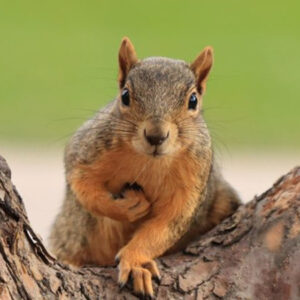
Early morning chirping is the best alarm you can wake up to. But what if the chirping is in the middle of the night?
All it takes is the wrong timing for the most beautiful alarm to become the most annoying sound on earth. But why do birds chirp at night? Learn all about it here.
Why Do Birds Chirp At Night? 10 Reasons

Here are 10 reasons why these tiny creatures chirp at unearthly hours.
1. Declaring A Territory
Just like humans, birds love their homes. Their territory is the place where they are safe and sheltered, have access to food and water, and a place where they nest.
A good area will help them thrive best, so they carefully select their territory.
Once they are used to their territory, they will defend it at all costs. Like we fence our yards, birds chirp and sing to signal that the territory is theirs.
If another bird tries to barge into their territory, birds will start chirping, claiming the territory as tiers and chasing the intruder away. They may even negotiate the boundaries of their territory through a song. One great example is that of a singing warbler.
2. Seeking Mates
Singing has long been considered a sex-specific signaling trait. The males sing songs to impress the female, and the female chooses a mate that sings best. The nightingale advertises fathering skills in his courtship song.
However, birds don’t court throughout the year. It is only during the courtship season, which is mostly spring. If it’s springtime, and you have observed a sudden increase in singing, the males seek a mate.
If your nights are interrupted by a noisy male bird, be prepared, nestlings are following soon (better get earmuffs).
3. Food
Birds have to search a lot for food. So, it is natural for them to get excited when they encounter a food source. They make sounds of delight at even a high intensity for several reasons.
For one, it can signal their flock members about a discovery, inviting them to the feast. Or if the food is scarce, it could be fighting and quarreling over food. In both cases, the noise will be loud.
Another reason could be that a male bird is showing off his ability to provide food for the family to attract females.
More food means more energy to sing and chirp. Also, the birds may be burning off energy to make room for extra food.
4. Danger Response
Birds are always on high alert; also, they are united against common enemies.
A bird will make loud noises when attacked by a predator to display aggressive behavior. This will distress, frighten, and demotivate the predator from pursuing the bird.
It also sends a warning signal to other birds, alerting them and increasing the chirping further. This results in a ripple effect on the noise levels.
5. Disorientation
We proudly label many cities as those that never sleep. However, this means there is light 24/7—natural light during the day and artificial light at night.
Birds follow a circadian rhythm regulated by light and darkness, and the presence of light at night can confuse and disorient them.
This wakes up the birds early and causes them to chirp and sing.
6. Find The Flock
It may sound like a game, but it is not.
This applies to migratory birds. We know so much about birds migrating, but did you know that most migratory species travel at night?
The reason? It is the same as when humans did not have compasses and Google Maps to navigate.
The moon and stars help point out the direction to be followed. These chirps during migration (officially known as “flight calls”) are the birds’ way of staying together so that no one is lost.
7. Babies
New human parents get only five to six hours of sleep because of the constant crying of the babies. Nestlings cry too.
Baby birds need constant attention from their parents, be it for food or warmth. They will chirp when they are uncomfortable or need their mother, who has been out too long searching for food.
8. Song Practice
They may not be a part of your choir, but that does not mean they don’t need practicing.
Birds practice chirping to perfect their bird calls, even though they are born singers. It needs to be perfect, as it is their communication skill. Also, it is necessary for them if they want to attract mates, defend their territory, and ward off predators.
9. Know The Community
Ever seen a flock of crows sitting together and cawing as if they were in an assembly deciding upon a grave matter?
Well, it’s not just the crows who do that. It is the birds’ way of knowing their census.
The volume of the noise will give the flock an idea of their population. With this information, they can conclude whether they need to compete for food and water.
10. Natural Active Period
Some birds are nocturnal. They are naturally active during the night. So, hearing night birds is not that uncommon. However, if their numbers suddenly increase or a large number of birds migrate to your area, the noises will become unbearably loud.








